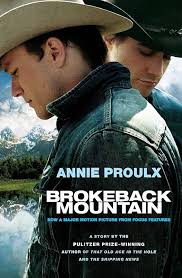
Introduction
Brokeback Mountain, directed by Ang Lee and released in 2005, is a film that transcends mere entertainment, challenging conventional views on love and sexuality. Its narrative revolves around the complex romantic relationship between two cowboys, Ennis Del Mar and Jack Twist, set against the backdrop of the American West. The film’s importance lies not only in its portrayal of LGBTQ+ themes but also in its significant impact on society’s perception of same-sex love, making it particularly relevant in today’s cultural conversation.
Significant Events and Reception
Initially released to critical acclaim, Brokeback Mountain received numerous accolades, including three Academy Awards and four Golden Globe Awards. The film was pioneering for its candid depiction of same-sex relationships, at a time when such narratives were rare in mainstream cinema. It sparked discussions surrounding LGBTQ+ rights and visibility, prompting viewers to confront their preconceptions about love, masculinity, and societal norms. The film’s famous line, ‘I wish I knew how to quit you,’ became emblematic of the struggles faced by those in love but constrained by societal expectations.
Impact on LGBTQ+ Representation
The impact of Brokeback Mountain extends beyond film, as it played a crucial role in a larger movement advocating for LGBTQ+ rights and acceptance. In Canada, where discussions around marriage equality were gaining momentum, the film contributed to the dialogue on the legitimacy of same-sex relationships. It emboldened creators to tell more diverse stories and inspired subsequent films to explore LGBTQ+ themes with greater nuance and depth.
Conclusion and Future Significance
In conclusion, Brokeback Mountain remains a significant cultural milestone that continues to resonate with audiences today. As society progresses towards greater acceptance of different sexual orientations, the film serves as a reminder of the journey toward respect and equality for all. In an era marked by sustained advocacy for LGBTQ+ rights, Brokeback Mountain holds enduring relevance, encouraging ongoing dialogue and reflection on love in all its forms. Its legacy is likely to influence future generations of filmmakers and storytellers eager to illuminate the multifaceted aspects of human relationships.



